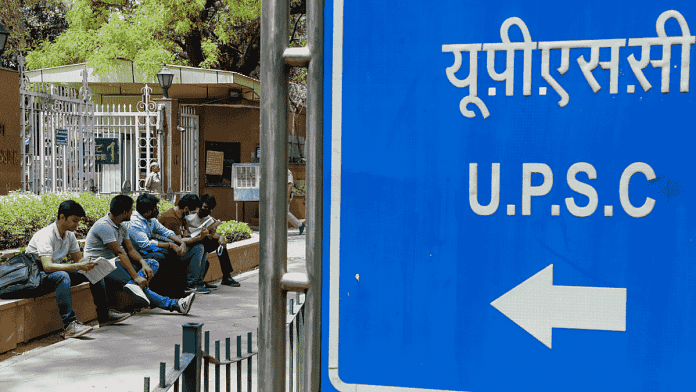Thank you dear subscribers, we are overwhelmed with your response.
Your Turn is a unique section from ThePrint featuring points of view from its subscribers. If you are a subscriber, have a point of view, please send it to us. If not, do subscribe here: https://theprint.in/subscribe/
UPSC Reforms –Ref—Shekhar Gupta column -25 th Feb.
With due acknowledgements and appreciation to the diligence, intelligence, merit and tenacity of all those who have been clearing the UPSC exams. How to compare and contrast the British ICS with the IAS etc? Post independence both were continuing for a long time. People had/may have different opinions including ICS and IAS themselves. One major difference is, during British time most of the higher posts were occupied by Britishers and Indians were given posts little below. But subsequently topmost posts are being occupied by UPSC people. During British time ICS, IP etc were controlled, monitored and evaluated by the Britishers. But now it is Indian politicians or their own senior fraternity or both. So, it is difficult to comment.
Another changing scenario had been, more candidates from various backgrounds aspiring to clear UPSC –even doctors, engineers, scientists and technocrats. Even after PhD candidates are aspiring. Why? They must be having their own comparisons and contrasts between the above professions and UPSC services.
Both during British time and for quite some time post-independence the upper age limit for candidates was much less and the number of attempts allowed also were limited. But now not so. Without any bias many say that under the previous terms and conditions far better candidates can be selected. Then no one including Shekhar Gupta may attribute the success to “rote, coaching etc”. More number of inherently capable candidates would be selected then. He has a similar criticism on JEE and NEET. But coaching centers for IIT and Medical (NEET)also make more or less the same money. More importantly, candidates spend lot of money for studying and completing the degree in private medical, dental, engineering etc colleges. UPSC aspirants do not spend that much money! Why parents spend so much money to make their children technocrats? Shekhar Gupta wanted reforms for JEE/NEET”. “Reforms or abolishing the requirement”? Some states want abolishing and private institutes support it. Another alternative is to confine NEET etc to only central institutes.
However, look at an opinion expressed by some IAS officers themselves in the past. They happened to say they are frequently transferred and so they are not able to specialize in anything. They require to be in a specific position/assignment for considerable time to specialize. On this basis /in this context a suggestion may be given. Patients wish to visit specialists depending on their ailments—cardiologists, ophthalmologists, surgeons etc. These doctors after MBBS accordingly specialize by doing another relevant degree. Of course, a MBBS is allowed to treat any patient. Is it not so with UPSC services? No screening for specialization in the exam system. Specialization is allocated only after one clears all the exams based on the total marks and candidates choice/ left over choice. A reform required is to mandatorily conduct exams-two papers instead of optionals- relevant to specific services under Group A & B and candidates should select them depending on their preference and accordingly selected for the services. (Post selection a differential training given is not an adequate justification). Though contents of different exams cover so many aspects it is required to know in the interestof the nation, the candidates knowledge and attitude towards social problems/evils in greater details. Book entitled “Social problems in ndia” mentions 25 problems in a brief way. Candidates are expected to know them in more details and also the problems that might have arisen with the passage of time. Similarly, candidates knowledge and attitude towards the administrative system. Separate papers for the above may be designed and made mandatory ( Of course presently some candidates do take on their own sociology as optionals). Not the least. Interview should be abolished. Alternatively, the criteria on which a candidate is assessed in the interview, on similar criteria a separate paper may be designed and be given as a written exam. Or the candidates may be selected solely on the basis of their performance in all the written exams.
These pieces are being published as they have been received – they have not been edited/fact-checked by ThePrint.

